| Facilitator profiles |
[Listed in alphabetical order]
Steve Draper
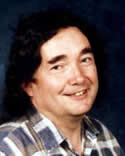 Steve Draper, following a PhD in Artificial Intelligence, worked as a post-doc. with Don Norman where he entered the field of HCI (Human Computer Interaction), and co-authored the book "User Centered System Design". He is currently at the University of Glasgow, where he has worked on evaluation of applications of learning technology, and developed the method of "Integrative Evaluation". The practical teaching innovations he has recently been personally concerned with include the use of EVS in lectures, and setting up a Peer Assisted Learning scheme. Much of what he has written is available at http://www.psy.gla.ac.uk/~steve/.
Steve Draper, following a PhD in Artificial Intelligence, worked as a post-doc. with Don Norman where he entered the field of HCI (Human Computer Interaction), and co-authored the book "User Centered System Design". He is currently at the University of Glasgow, where he has worked on evaluation of applications of learning technology, and developed the method of "Integrative Evaluation". The practical teaching innovations he has recently been personally concerned with include the use of EVS in lectures, and setting up a Peer Assisted Learning scheme. Much of what he has written is available at http://www.psy.gla.ac.uk/~steve/.
Stephen C. Ehrmann
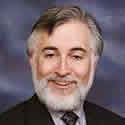 Stephen C. Ehrmann directs the award-winning Flashlight Program on the evaluation of educational uses of technology at The Teaching, Learning, and Technology Group; the Flashlight Online web-based system for doing, and sharing, surveys is in use at hundred colleges and universities around the world. Dr. Ehrmann is well-known as a writer and public speaker. He has recently worked on a study of factors affecting the wider adoption of instructor-developed software, on a formative evaluation of course management system use, on an article on the implications of technological changes for the goals and content of a university education, and on evaluation of learning spaces.
Stephen C. Ehrmann directs the award-winning Flashlight Program on the evaluation of educational uses of technology at The Teaching, Learning, and Technology Group; the Flashlight Online web-based system for doing, and sharing, surveys is in use at hundred colleges and universities around the world. Dr. Ehrmann is well-known as a writer and public speaker. He has recently worked on a study of factors affecting the wider adoption of instructor-developed software, on a formative evaluation of course management system use, on an article on the implications of technological changes for the goals and content of a university education, and on evaluation of learning spaces.
Before helping to start The TLT Group in 1998, Steve Ehrmann served for almost twenty years as an officer for programs giving grants for educational innovations in postsecondary education. He has a Ph.D. in Management and Higher Education.
Lewis Elton
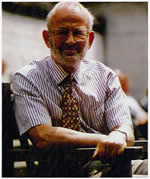 Lewis Elton is Visiting Professor of Higher Education, University of Manchester; Professor Emeritus of Higher Education, University College London and University of Surrey; Fellow of the American Institute of Physics, the Society for Research into Higher Education, the Royal Society of Arts and the Higher Education Academy; and Honorary Life Member of the Staff and Educational Development Association. He holds Doctorates (honoris causa) of the University of Kent at Canterbury and the University of Gloucestershire. He has been presented with a Festschrift by his former students [P. Ashwin (ed), ‘Changing Higher Education: The Development of Learning and Teaching’, Routledge Education 2006], and received the Times Higher Lifetime Achievement Award, 2005. His most recent work has been concerned with the scholarship of teaching and learning, including the research/teaching nexus in higher education, the balance between collegial and ‘top down’ management in universities, assessment for creativity and academic writing in the disciplines.
Lewis Elton is Visiting Professor of Higher Education, University of Manchester; Professor Emeritus of Higher Education, University College London and University of Surrey; Fellow of the American Institute of Physics, the Society for Research into Higher Education, the Royal Society of Arts and the Higher Education Academy; and Honorary Life Member of the Staff and Educational Development Association. He holds Doctorates (honoris causa) of the University of Kent at Canterbury and the University of Gloucestershire. He has been presented with a Festschrift by his former students [P. Ashwin (ed), ‘Changing Higher Education: The Development of Learning and Teaching’, Routledge Education 2006], and received the Times Higher Lifetime Achievement Award, 2005. His most recent work has been concerned with the scholarship of teaching and learning, including the research/teaching nexus in higher education, the balance between collegial and ‘top down’ management in universities, assessment for creativity and academic writing in the disciplines.
Peter Kandlbinder
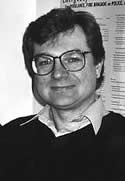 Peter Kandlbinder is a Senior Lecturer in the Institute for Interactive Media and Learning at the University of Technology, Sydney. He has been working in the field of academic development for over 15 years with experience in supporting academics to develop their capabilities in assessing student learning, problem-based learning, postgraduate supervision and other forms of small group learning. Peter’s broad research interest is on the impact that academics’ decisions make in course design has on student learning and his research has been published in various book chapters, journal articles, conference papers and an edited series of interviews in which postgraduate supervisors talk about their supervision practice.
Peter Kandlbinder is a Senior Lecturer in the Institute for Interactive Media and Learning at the University of Technology, Sydney. He has been working in the field of academic development for over 15 years with experience in supporting academics to develop their capabilities in assessing student learning, problem-based learning, postgraduate supervision and other forms of small group learning. Peter’s broad research interest is on the impact that academics’ decisions make in course design has on student learning and his research has been published in various book chapters, journal articles, conference papers and an edited series of interviews in which postgraduate supervisors talk about their supervision practice.
Peter has been involved in a number of projects to improve the quality of assessment at the University of Technology, Sydney, including focus groups with staff and students, editing the “Preventing Plagiarism” kit and the IML Assessment guide series, reviewing of assessment policy and procedures, and the development of the IML Assessment web site.
Terry Mayes
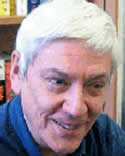 Terry Mayes is an Emeritus Professor at Glasgow Caledonian University. He is currently engaged by the Higher Education Academy as leader of the Evaluation and Dissemination Support Team for the HEA/JISC e-learning Benchmarking and Pathfinder programmes. He was the formative evaluator/critical friend for the Benchmarking Pilot programme that concluded in July 2006.
Terry Mayes is an Emeritus Professor at Glasgow Caledonian University. He is currently engaged by the Higher Education Academy as leader of the Evaluation and Dissemination Support Team for the HEA/JISC e-learning Benchmarking and Pathfinder programmes. He was the formative evaluator/critical friend for the Benchmarking Pilot programme that concluded in July 2006.
He is also currently acting as e-pedagogy advisor on the Scottish e-learning Transformation Project TESEP (Transforming and Enhancing the Student Experience through Pedagogy) as well as advisor for the Scottish QAA Enhancement Theme for the first year experience.
Terry Mayes has a long experience as both researcher and practitioner in learning technology. During the late 1990s Terry Mayes led collaborative projects funded through the UK Research Councils (both ESRC and EPSRC) involving research on the educational potential of vicarious learning. His recent research involves a study, funded through the ESRC TLRP, of the learning cultures in FE, and he has been a consultant for the JISC-funded LEX (Learner Experience) project. He has published widely on pedagogical aspects of learning technology. He was the co-chair for ALT-2006.
Colin Milligan
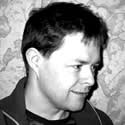 Colin Milligan is a Researcher in the Centre for Academic Practice and Learning Enhancement at the University of Strathclyde. His current work is focused on the opportunities provided by social software in supporting personal development planning and the personal research environment postgraduate research students.
Colin Milligan is a Researcher in the Centre for Academic Practice and Learning Enhancement at the University of Strathclyde. His current work is focused on the opportunities provided by social software in supporting personal development planning and the personal research environment postgraduate research students.
Although a molecular biologist by training, Colin has worked in e-Learning for thirteen years, authoring, developing, delivering and researching the efficacy of online learning content. Previous work has centred on how technology can be utilised to enhance the learning process, either by:
- providing highly interactive content which stimulates the learner (see: http://www.jelsim.org/),
- creating an online environment which is centred on the needs of the individual learner rather than restricted by limitations imposed by the institution (see: http://wiki.cetis.ac.uk/ple)
- designing learning experiences, especially those which recognise the importance of formative assessment in creating a self-regulated learner
A full CV is available from: http://personal.strath.ac.uk/colin.milligan/
Catherine Owen
 Catherine Owen is manager of the REAP project and is based at the Centre for Academic Practice and Learning Enhancement at the University of Strathclyde. Catherine has a professional background in information and library science and started her career as an archivist and librarian in the cultural heritage sector. More recently, Catherine was director of a UK-wide service based at the University of Glasgow which delivers high-quality digital resources to the higher education research community. As well as editing a number of books exploring the use of new technologies in higher education research, Catherine has acted as a consultant to a broad range of e-research and digital resource creation projects in the arts, both nationally and internationally. Catherine recently completed an MBA and is particularly interested in strategic change initiatives in higher education and their impact on institutional processes and cultures.
Catherine Owen is manager of the REAP project and is based at the Centre for Academic Practice and Learning Enhancement at the University of Strathclyde. Catherine has a professional background in information and library science and started her career as an archivist and librarian in the cultural heritage sector. More recently, Catherine was director of a UK-wide service based at the University of Glasgow which delivers high-quality digital resources to the higher education research community. As well as editing a number of books exploring the use of new technologies in higher education research, Catherine has acted as a consultant to a broad range of e-research and digital resource creation projects in the arts, both nationally and internationally. Catherine recently completed an MBA and is particularly interested in strategic change initiatives in higher education and their impact on institutional processes and cultures.
Derek Rowntree
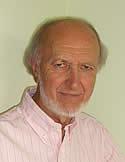 Dr Derek Rowntree recently retired as Professor of Educational Development at the Institute of Educational Technology in the Open University (UK). He holds a BSc (Econ), a teacher's certificate and a higher doctorate (DTech) awarded for his publications relating to the improvement of learning and teaching. Of his many books, Assessing Students: How Shall we Know Them? (Routledge, London) is the one most relevant to the present conference.
Dr Derek Rowntree recently retired as Professor of Educational Development at the Institute of Educational Technology in the Open University (UK). He holds a BSc (Econ), a teacher's certificate and a higher doctorate (DTech) awarded for his publications relating to the improvement of learning and teaching. Of his many books, Assessing Students: How Shall we Know Them? (Routledge, London) is the one most relevant to the present conference.
For more than 40 years he has been advising on the development of multi-media learning and student assessment systems, and producing course materials, in a variety of areas including Arts and Education, Social Sciences, Health and Social Welfare and Management Education. He has been acting as an educational consultant to course teams and individual academics, and running workshops and online courses for teachers, trainers and managers, not only for the Open University and other educational institutions around the world but also for many professional, commercial, and public service organisations.
For further details, and various articles about assessment and other course design issues, see his web-site:
http://www-iet.open.ac.uk/pp/D.G.F.Rowntree/derek.html
Maddalena Taras
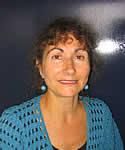 Maddalena Taras has a language/linguistics background: MA, MPhil in Italian literature, MA in Applied Linguistics. Senior lecturer at the University of Sunderland, she has lectured in French and ESOL. Her research focuses on assessment practice and theory. Her innovative form of student self-assessment in the HE context uses summative work, incorporates tutor/peer feedback, and with-holds the tutor grade until feedback has been understood and students have graded their own work.
Maddalena Taras has a language/linguistics background: MA, MPhil in Italian literature, MA in Applied Linguistics. Senior lecturer at the University of Sunderland, she has lectured in French and ESOL. Her research focuses on assessment practice and theory. Her innovative form of student self-assessment in the HE context uses summative work, incorporates tutor/peer feedback, and with-holds the tutor grade until feedback has been understood and students have graded their own work.
She has signalled anomalies and contradictions in the use of feedback and assessment protocols within HE institutions which are detrimental to student learning. Her work on theory clarifies assessment terminology and proffers a relationship between summative, formative and self-assessment which is based on the process as opposed to the functions of assessment as is currently the case in the assessment for learning paradigm in the compulsory sector. This begins to build a bridge in discourse on assessment across sectors.
Nigel Watson
 Dr Nigel Watson. Graduate of Paisley University with a BSc Hons in Biology and subsequently from Jordanhill College of Education as a qualified Scottish secondary school teacher. He taught biology and chemistry to all levels of school student in Glasgow and Ayrshire schools until commencing doctoral studies with the Forensic Science Unit (now the Centre for Forensic science) at Strathclyde University and subsequently commencing work with the Forensic Science Unit in 1986. Dr Watson has carried out forensic casework in the areas of DNA, blood slash interpretation and fibre analysis and has appeared as an expert witness in court.
Dr Nigel Watson. Graduate of Paisley University with a BSc Hons in Biology and subsequently from Jordanhill College of Education as a qualified Scottish secondary school teacher. He taught biology and chemistry to all levels of school student in Glasgow and Ayrshire schools until commencing doctoral studies with the Forensic Science Unit (now the Centre for Forensic science) at Strathclyde University and subsequently commencing work with the Forensic Science Unit in 1986. Dr Watson has carried out forensic casework in the areas of DNA, blood slash interpretation and fibre analysis and has appeared as an expert witness in court.
Responsibilities have centred around the delivery of lecture and laboratory work in a wide variety of disciplines to both undergraduate courses and the masters and diploma postgraduate forensic science courses. These have included lectures and laboratories in forensic DNA and also in microscopy and hair and fibre evidence examination. In addition Dr Watson has lectured in nucleic acids chemistry, separation sciences concerning proteins and DNA fragments, and aspects of forensic botany. A recent new class has been in Forensic Statistics and Communication. Dr Watson also sits on the University safety review committee for genetically modified organisms and on the University Working Group on Assessment Policy.


